Plants – they are a crucial part of the planet’s biodiversity, offering beauty, sustenance, and even medicinal benefits. However, just as they can offer life, they can also take it away. There exists a category of plants that, while seemingly innocent or beautiful, can cause harm or even death. These deadly plants have evolved sophisticated mechanisms, often chemical in nature, to protect themselves from predators eating or damaging them. So in order to keep you safe, this article will take an in-depth look at 8 of the different plants that can kill you.
Contents
The Deadly Allure Of Plants
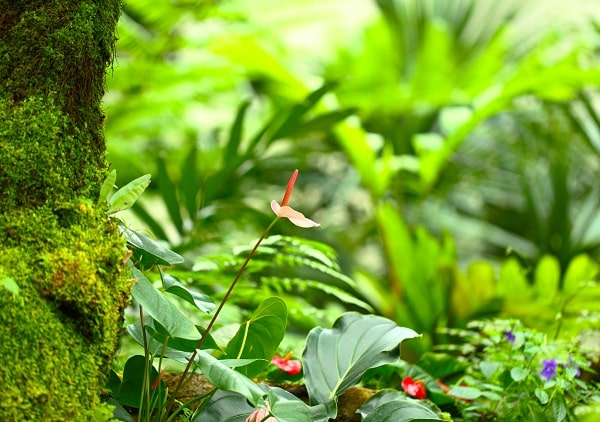
One common misconception is that dangerous plants are always exotic or rare, found only in the deepest jungles or most remote islands. In reality, this isn’t always the case. Some of these plants can be found in your own backyard or local park, masquerading as ordinary flora. In some instances, their vibrant colors and attractive flowers can be deceptive, enticing unsuspecting individuals to touch, smell, or even taste them.
The danger that these plants pose to humans primarily comes from their chemical composition. They contain a range of toxins that can cause a variety of symptoms, from minor skin irritations to severe digestive issues, neurological problems, or even death. The method of poisoning varies – some plants release their toxins upon touch, while others require ingestion, and some can even poison through the inhalation of their pollen or spores.
Plants That Can Kill You
As you delve into the list of these deadly flora, it’s important to remember that this isn’t meant to cause panic or fear. Instead, it’s a cautionary tale of sorts, reminding you that nature, in all its beauty and majesty, demands respect and careful handling. The saying “look but don’t touch” certainly applies, especially if there’s uncertainty about a plant’s identification.
Deadly Nightshade
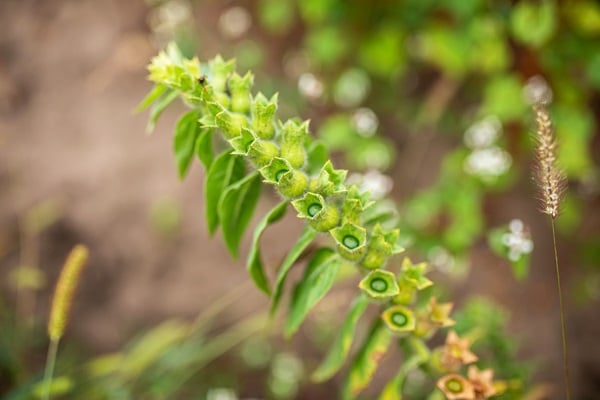
Deadly Nightshade, also known as Atropa belladonna, is a plant native to Europe, North Africa, and Western Asia. It’s a plant of deceptive beauty, with its dark purple, bell-shaped flowers, and shiny blackberries. However, every part of this plant, especially the berries, contains atropine and scopolamine, potent neurotoxins that can cause hallucinations, delirium, and even death in high doses.
Ingestion of Deadly Nightshade leads to a dry mouth, dilated pupils, blurred vision, and headache. More severe symptoms include hallucinations, loss of balance, and convulsions. The plant has a long history of use as a poison due to its potent toxins, but it was also used medicinally in the past, underscoring the fine line between medicine and poison.
Oleander
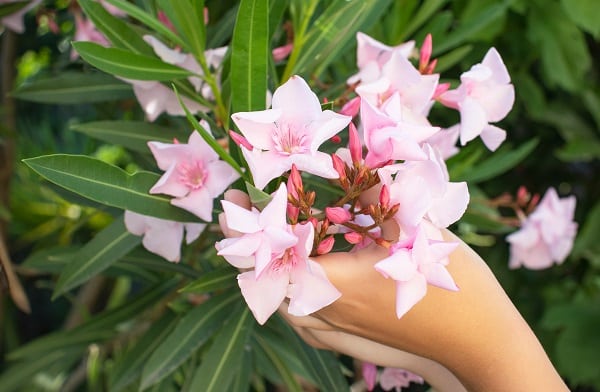
Oleander is an evergreen shrub native to North Africa, the eastern Mediterranean basin, and Southeast Asia. It’s a popular ornamental plant worldwide due to its beautiful pink, white, or red flowers. Despite its beauty, Oleander is one of the most toxic plants, and all its parts contain potent cardiac glycosides that can affect the heart.
Even small amounts of Oleander can cause nausea, vomiting, and diarrhea. In severe cases, ingestion can lead to irregular heart rhythms, seizures, and even death. In addition to ingestion, Oleander toxins can also cause skin irritation or dermatitis upon contact. Care must be taken when handling Oleander, as even the smoke produced by burning the plant can be toxic if inhaled.
Water Hemlock
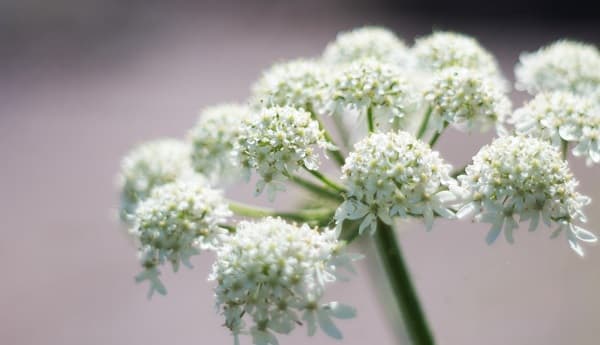
Water Hemlock, or Cicuta maculata, is considered one of the most poisonous plants in North America. It is a perennial herbaceous plant that thrives in wet, marshy areas and has small, white umbrella-like flower clusters. The plant’s root and stem contain a highly toxic compound called cicutoxin, which acts as a powerful central nervous system stimulant.
Ingesting even a small amount of Water Hemlock can lead to symptoms such as nausea, vomiting, and abdominal pain. As the toxin takes effect, it can cause seizures, respiratory failure, and, ultimately, death. Immediate medical attention is crucial for anyone who has ingested Water Hemlock, as a prompt intervention may be the difference between life and death.
Castor Bean Plant
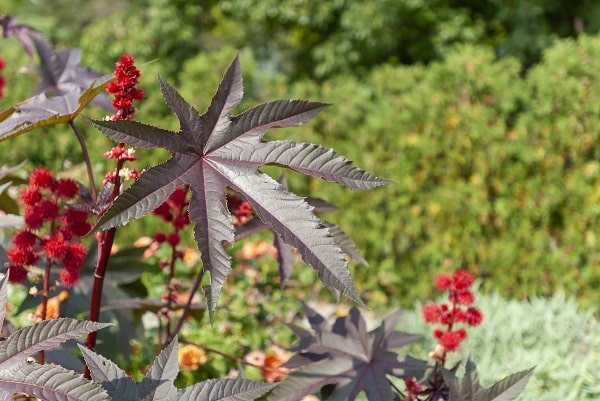
The Castor Bean Plant, scientifically known as Ricinus communis, is native to Africa and the Mediterranean Basin but has become naturalized in many tropical and subtropical regions. It’s an attractive plant with large, palmate leaves and clusters of red or green spiky fruits. Despite its beauty, the seeds of the Castor Bean Plant contain a highly toxic protein called ricin.
Ricin is a potent toxin that, when ingested, can lead to severe gastrointestinal symptoms such as abdominal pain, vomiting, and diarrhea, often with blood. As the poison progresses, it can cause dehydration, low blood pressure, kidney failure, and eventually death. The danger of ricin is well-known, and it has even been used as a biological weapon in the past.
Rosary Pea

The Rosary Pea, also known as Abrus precatorius, is a perennial climbing vine native to India and tropical regions of Asia. It’s known for its bright red seeds with a black spot, which are often used as beads for jewelry or rosaries. The seeds contain a highly toxic protein called abrin, which is similar to ricin in its mechanism of action and potency.
Abrin, when ingested or inhaled, inhibits protein synthesis within cells, leading to cell death. Symptoms of Rosary Pea poisoning include nausea, vomiting, abdominal pain, and difficulty breathing. As the poisoning progresses, it can lead to organ failure and death. Due to their attractive appearance, the seeds pose a particular risk to children who might be tempted to put them in their mouths.
White Snakeroot
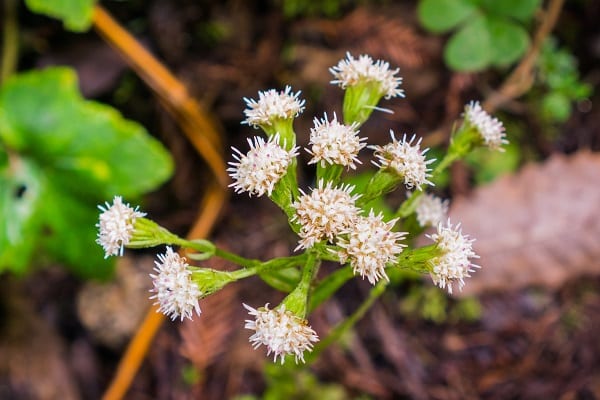
White Snakeroot, or Ageratina altissima, is a perennial herb native to North America. It can be found in wooded areas and produces clusters of small, white, fluffy flowers. This plant contains a toxic alcohol called tremetol, which can be harmful to both humans and animals. Ingestion of White Snakeroot can lead to trembles or tremetol poisoning. Symptoms include muscle tremors, vomiting, and severe weakness.
In severe cases, it can lead to heart failure and death. White Snakeroot poses a particular danger to livestock, such as cows, who can ingest the plant while grazing. The toxin can then pass through their milk, causing “milk sickness” in humans who consume the contaminated milk. This illness was responsible for the death of many early American settlers, including Abraham Lincoln’s mother.
Angel’s Trumpet
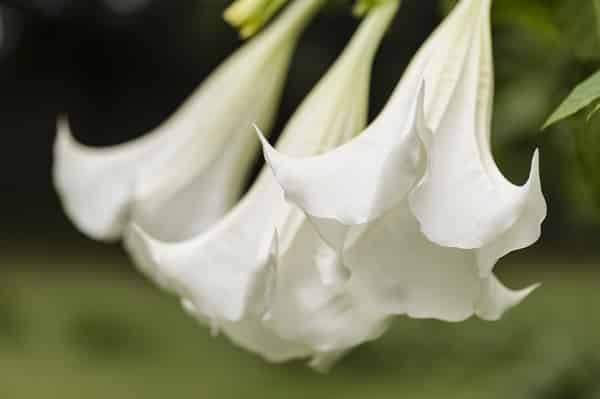
Angel’s Trumpet, belonging to the genus Brugmansia, is a group of flowering plants native to South America. Known for their large, trumpet-shaped, fragrant flowers, they are popular ornamental plants in many parts of the world. However, all parts of the plant contain tropane alkaloids, including scopolamine and atropine, which can be highly toxic and potentially deadly.
Consuming Angel’s Trumpet can lead to symptoms such as dry mouth, muscle weakness, elevated heart rate, and hallucinations. In more severe cases, it can cause seizures, paralysis, and even death. The plant has a history of use in traditional medicine and shamanistic practices due to its hallucinogenic properties, but its consumption can easily lead to poisoning due to the high variability in toxin concentration.
Daffodil
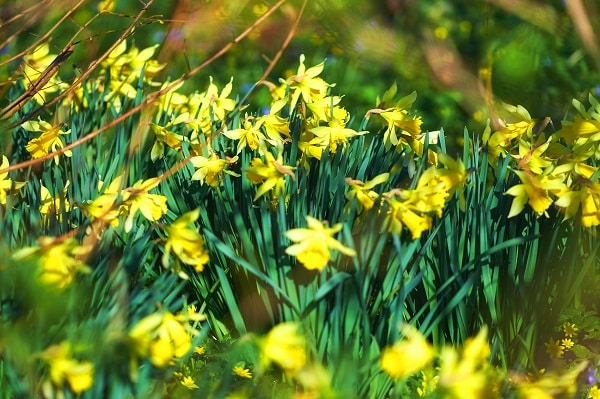
Daffodils, or Narcissus, are a group of spring-blooming perennial plants known for their bright yellow or white flowers. They are native to the Mediterranean region but have been widely cultivated around the world as ornamental plants. Despite their cheerful appearance, all parts of the Daffodil contain alkaloids that can be toxic when ingested, with the bulbs being the most poisonous part.
Ingestion of Daffodils can cause symptoms such as nausea, vomiting, abdominal pain, and diarrhea. More severe symptoms can include irregular heartbeat, respiratory depression, and convulsions. The plant’s bulbs are often mistaken for onions, leading to accidental poisonings. Even handling Daffodil bulbs can cause skin irritation in some individuals, a condition known as “daffodil itch”.
Be Aware Of The Plants That Can Kill You!
Be aware of the plants that can kill you in your environment. Make sure you know what plants are poisonous, and take precautions to avoid contact with them. Consider wearing gloves when handling potentially toxic plants, and do not ingest any part of the plant without consulting an expert first. Even seemingly harmless ornamental plants can contain toxins that may pose a risk to health. Don’t let their attractive appearance fool you – some of the most beautiful plants can be the deadliest. Keep your eyes open, and stay safe!


